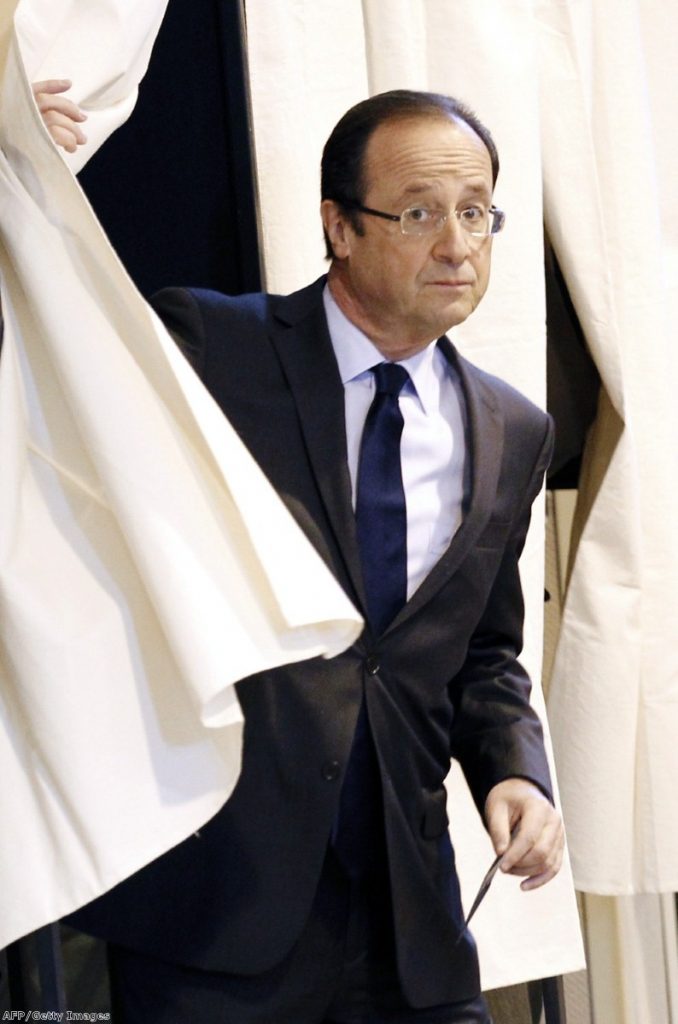Far-right enjoys huge support in French election
Marine Le Pen's far-right party enjoyed a massive boost in the French elections, in a sign that the financial crisis hitting Europe could help extremist parties across the continent.
The anti-Muslim, anti-immigration party came third with 19.9% of the vote according to early results. She gained nearly three per cent more support than her father when he entered into a run off with then-President Jacques Chirac in 2002.
Unlike the 2002 election, Ms Le Pen failed to get into the run-off vote, however, with Socialist candidate Francois Hollande set to go head-to-head against incumbent Nicolas Sarkozy in the second round.
Mr Hollande came in first with 27.5% of the vote against President Sarkozy's 26.6%.


The Socialist candidate campaigned on a decidedly leftist programme which includes a slow-down in the deficit reduction programme and a 75% upper tax rate on income above 1 million euros.
A victory for the Socialists would finally bring to an end a period of total right-wing dominance in Europe.
It would also signal the end of the austerity consensus which has gripped Europe since the financial crisis and could raise serious questions about the future of the European fiscal pact.
Critics warn Mr Hollande's policy package would drive up the price of French bond yields, however.
If he does secure victory he would become the first left-wing French president since Francois Mitterand, who beat incumbent Valery Giscard-d'Estaing in 1981.
President Sarkozy would be the first French president to fail to win re-election fight for 30 years.
His vulnerability is a sign of how alienated the French electorate has grown of a man with a flamboyant private life – including a high-profile marriage to supermodel Carla Bruni – and friendships with rich executives.
The incumbent has tried to present a statesmanlike image through the campaign, to counter accusations that he is prone to outbreaks of arrogance and abusive language.
Many of his original supporters, who were encouraged by his push for 'Anglo-Saxon economics', have since been disappointed by unemployment reaching a 12 year high.
President Sarkozy won a temporary boost to his electoral chances after his response to the shooting in southwest France, but the support seems to have slipped back since then.
Ms Le Pen refused to back either of the front runner candidates, but a BVA poll before the first-round suggested 48% of her supporters would transfer their vote to President Sarkozy while 24% would vote for Mr Hollande.
Radical leftist candidate Jean-Luc Melenchon, who has become the star of the contest due to his withering wit and fierce campaigning, earned a disappointing 11.1%.
Turnout was surprisingly high, with early figures from the Interior Ministry putting it at 70.6%.












